2021 October
About Andrew Cusack
 Writer, web designer, etc.; born in New York; educated in Argentina, Scotland, and South Africa; now based in London.
Writer, web designer, etc.; born in New York; educated in Argentina, Scotland, and South Africa; now based in London. read more
News
Blogs
Reviews & Periodicals
Arts & Design
World
France
Mitteleuropa
Knickerbockers
Argentina
The Levant
Africa
Cape of Good Hope
Netherlands
Scandinavia
Québec
India
Muscovy
Germany
Academica
Fifth Republic Britain
An Anglo-Gaullist Reading Round-up
While I’m a big Adenauer fan there’s little doubt that de Gaulle was the greatest European statesman of the twentieth century and an historical figure of such a position will always be the subject of interest.
Both Jonathan Fenby’s 2010 book The General: Charles de Gaulle and the France He Saved and Dr Sudhir Hazareesingh’s 2012 In the Shadow of the General: Modern France and the Myth of de Gaulle received wide notice, but neither as much as Julian Jackson’s 2019 A Certain Idea of France: The Life of Charles de Gaulle.
Jackson’s work is indeed magisterial and Lord Sumption’s praise of it as “the best biography of de Gaulle in any language” is only just an exaggeration. (For a strong bibliography of works on the general, see the appendix of Charles Williams’s 1993 The Last Great Frenchman: A Life of General de Gaulle.)
Study of the life and contradictions of de Gaulle is always worthwhile, but many spy a Gaullist moment in the Tory party’s refreshingly surprising turn away from ideological liberalism towards a more pragmatic conservatism under Boris Johnson.
Painting Johnson as Britain’s first Gaullist prime minister would be a stretch, but there is certainly some crossover: nationalist, economically interventionist, focused on national sovereignty and national exceptionalism.
■ Eliot Wilson pointed out this summer that Boris has always been difficult to classify in ideological terms.
■ Speccie political editor James Forsyth wrote in The Times that Boris the Gaullist puts action over ideas. Just before the party conference Forsyth also predicted the PM’s speech would be “in line with his recent Gaullist turn”.
■ QMUL’s Nick Barlow explores the parallels between de Gaulle’s Fifth Republic and Boris’s style of government.
■ Meanwhile Aris Roussinos argues that de Gaulle was always right in vetoing British entry into the EEC, and that true-blue FBPE types should welcome Brexit as advancing the cause of European integration.
■ Dean Godson (New Statesman) says that Defence Secretary Ben Wallace is pursuing “almost Gaullist trajectory for future British policy”.
■ When asked (on GB News) where he sits on the political spectrum, national treasure Peter Hitchens expressed his surprise that the Gaullist combination of “strong defence, patriotism, a strong welfare state, and national independence” isn’t more common in British politics.
■ ‘Bagehot’, the political column in The Economist, put it that the man who rebuilt post-war France has some important lessons for Britain’s prime minister: What Boris could learn from de Gaulle.
■ The American Conservative embarrassingly illustrated a piece on Europe’s Gaullist Revival with a picture of General Kœnig. (Always check the képi — as a brigadier general, de Gaulle only had two stars!)
■ Mike Bird discerned some Anglo-Gaullism in a pile of recent newspaper headlines.
■ As long ago as 2017 — what a world away that was! — Prospect argued in a somewhat rambling piece that the Brexiteers were Britain’s new Gaullists.
■ Honourable mention: Frederick Studemann chides Churchill and dumps de Gaulle, saying Boris should model himself on Bismarck and make for a Prussian Brexit.
But, for all this, when New Labour bigwig John McTernan suggested that Boris is not a Churchill but a de Gaulle, the great Julian Jackson himself pointed out there are still great differences between the PM and le général.
All the same, I’m welcoming our Anglo-Gaullist future with open arms.
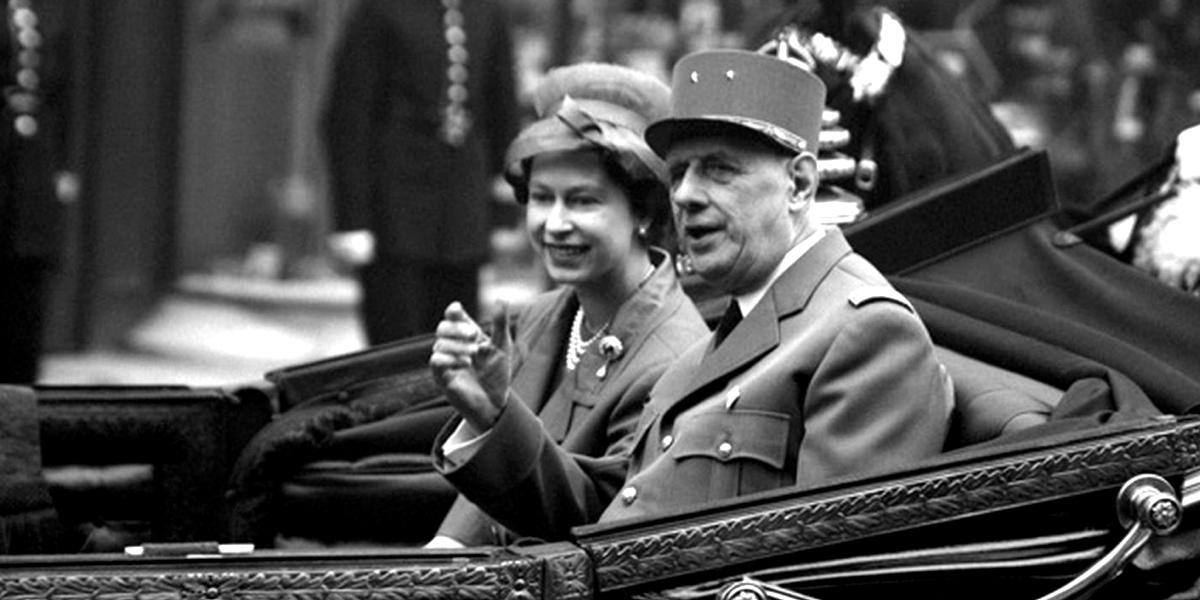
Yellowfin
Flying blind by seeing a play you have no idea about and haven’t read up on is obviously a game of chance, but accompanying two mates to see Marek Horn’s new play ‘Yellowfin’ at Southwark Playhouse last night was an unexpected and thoroughly enjoyable delight.
It might just be me, but if I had been told the play was about three U.S. senators interrogating a smuggler of illegal fish substances I would have turned off completely and missed this winner.
Set in the familiar but not-too-distant future, ‘Yellowfin’ is a slow-release capsule of a not-terribly-fussed world following an inexplicable ecological disaster that, as it happens, turns out to be perfectly manageable.
It takes long and confident strides veering towards nihilism without quite touching it but the real joy is its almost-titillating scepticism of the eco-reorganisationalism that is all the rage now.
If nothing else, ‘Yellowfin’ is a deeply subversive play.
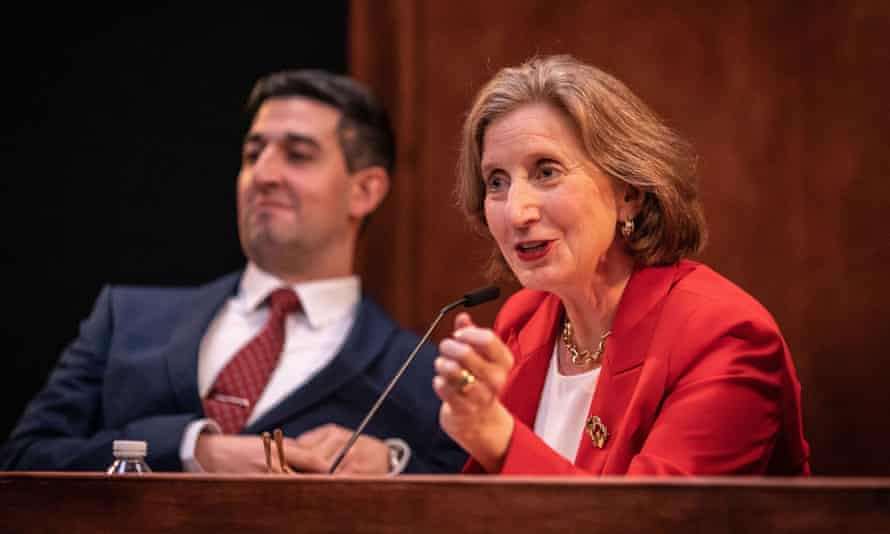
Production Photos: Helen Maybanks
Nancy Crane masters the role of the committee chairwoman whose intelligence never quite matches her confidence. Beside her is Beruce Khan as the smug younger colleague.
Nicholas Day supplies delicious nuggets of comic relief as an elderly senator not entirely sure of his surroundings. (Parallels to the most recent U.S. Senate alum to move into the White House are tempting.)
Joshua James is the fish-smuggling object of their inquiry who breezily pops the bubble of sententious seriousness the senators attempt to bring to the matter at hand.
Good writing, well acted. Let the record show ‘Yellowfin’ is well worth it.
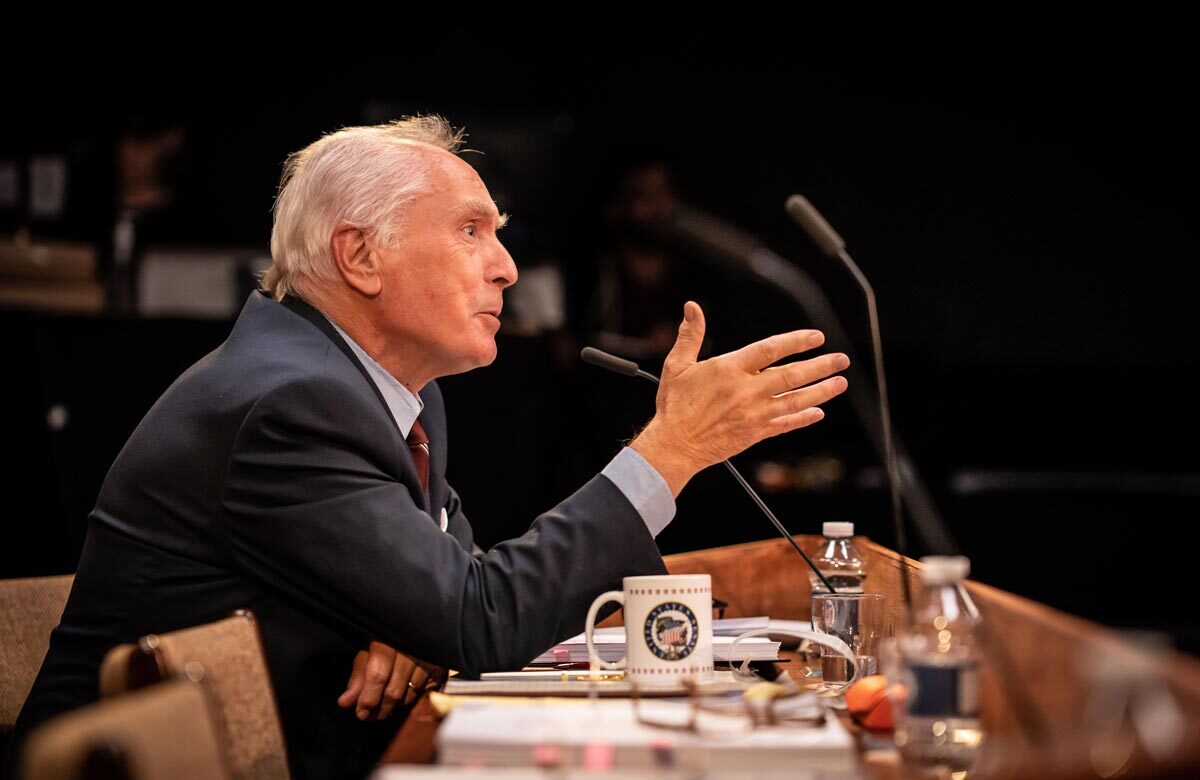
Production Photos: Helen Maybanks
Gut Wulfshagen
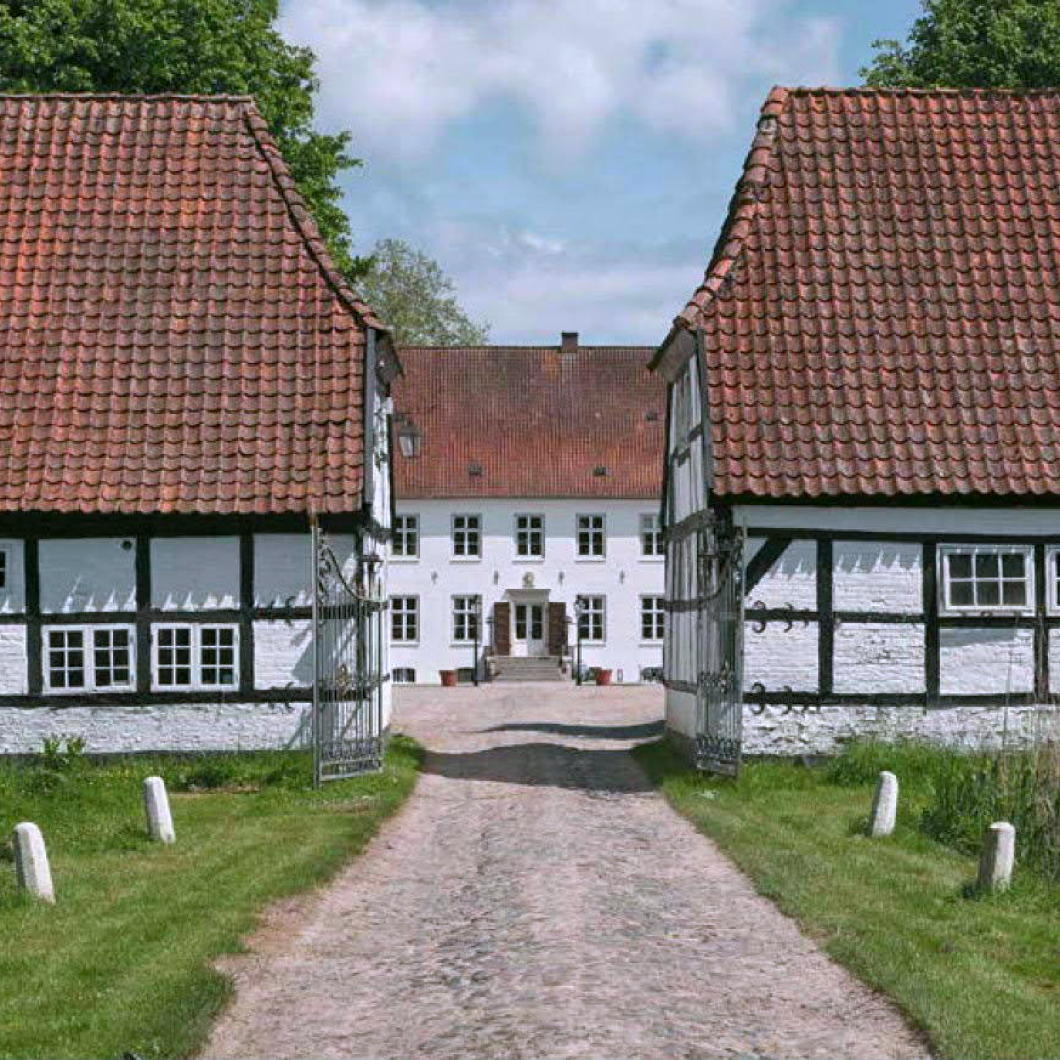
I love when a house is arranged with its farm buildings around a garth or a gaard or a hof.
At Gut Wolfshagen in Schleswig-Holstein the barns are arranged flanking a narrow pinch that gives just a hint of the manor house beyond, lending an air of baroque surprise.
This house was built by Andreas Pauli von Liliencron at the very end of the seventeenth century and was acquired by the von Qualen family in 1787.
When the last of the von Qualens here died childless in 1903 they bequeathed Gut Wulfshagen to the uxorial nephew Ludwig Graf zu Reventlow. (more…)
A Dwiggins Roundup
WE LOVE FEW things more than a talent rediscovered after decades of neglect, and in the realms of graphic design no one fits this bill better than William Addison Dwiggins (1880-1956).
This man was a type designer, calligrapher, illustrator, book designer, and commercial artist with a good eye and just the right level of whimsy.
Much of the revival of interest is thanks to Bruce Kennett and his book W. A. Dwiggins: A Life in Design which has done a great deal to spread the gospel of Dwiggins.
Here below are a series of links about the man and his work. (more…)
Northern Neogothic
Will Pryce’s Photographs of the John Rylands Library
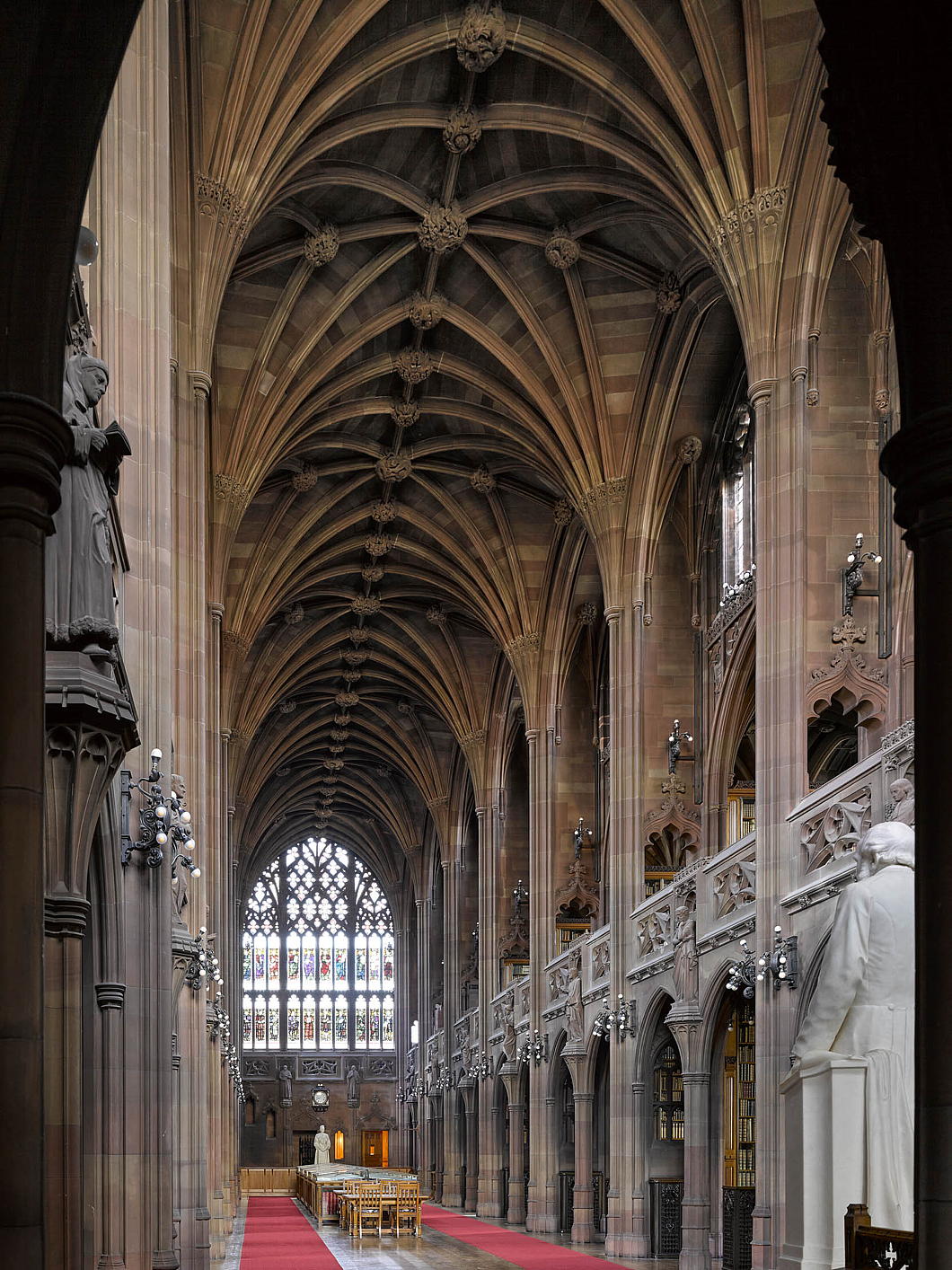
Will Pryce is one of the best architectural photographers out there and Country Life put him to good use for an article earlier this year about Manchester’s John Rylands Library.
The library was founded by the deliciously named Enriqueta Rylands in memory of her late husband, the merchant philanthropist John Rylands who became Manchester’s first multi-millionaire.
Manchester experienced a flowering of northern neogothicism in the nineteenth century, and the John Rylands Library is sometimes used as a film location standing in for Pugin’s Palace of Westminster, most recently in the 2017 film ‘Darkest Hour’. The city’s magnificent Town Hall fulfils this role even more often — c.f. the UK telly original of ‘House of Cards’. Scandalously, Manchester’s City Council no longer meet in their original council chamber, having decamped to the nonetheless handsome 1938 extension built next to it.
The John Rylands Library (and research institute) is here to stay though.
For more of Pryce’s work, see his website.
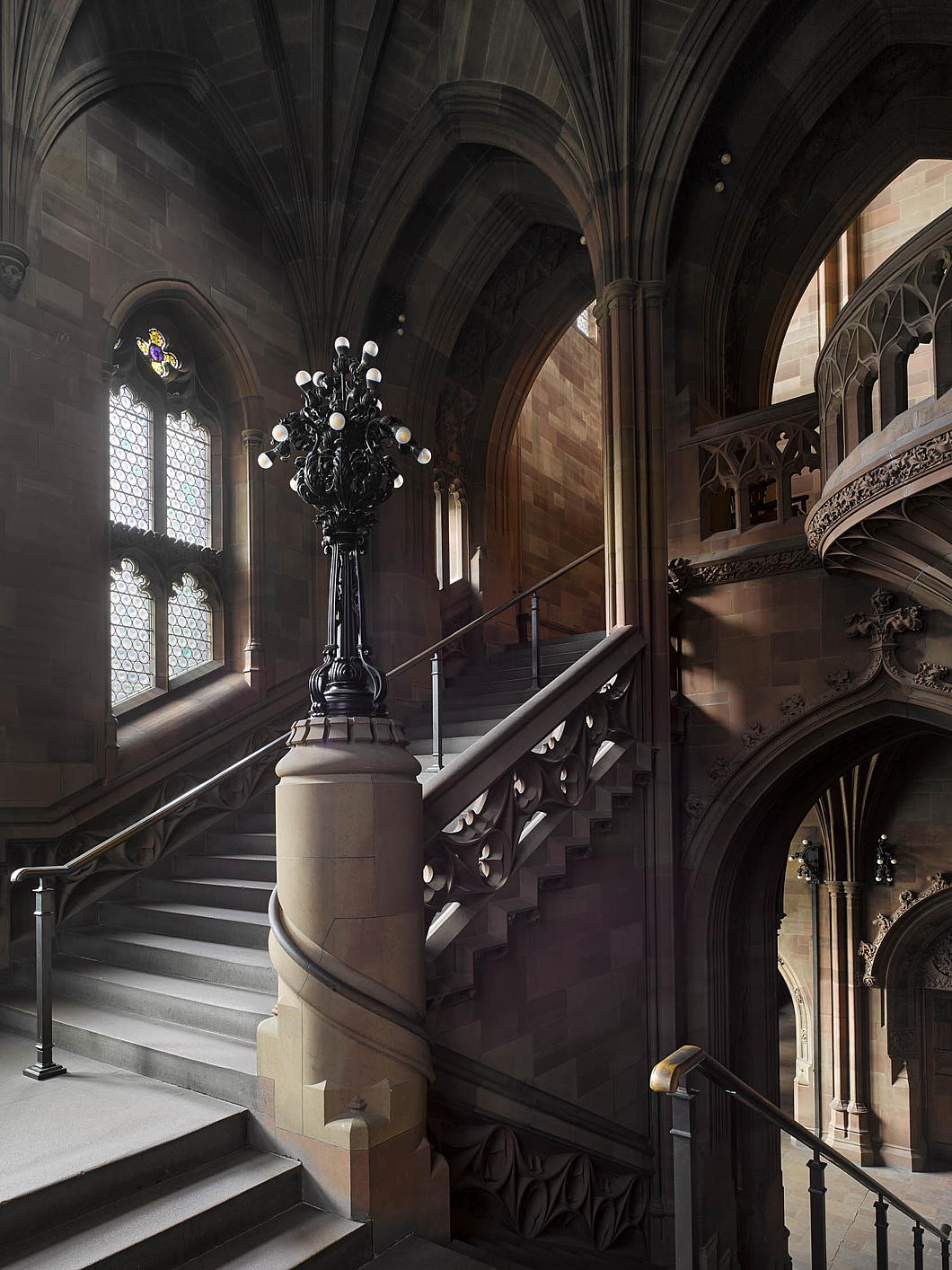
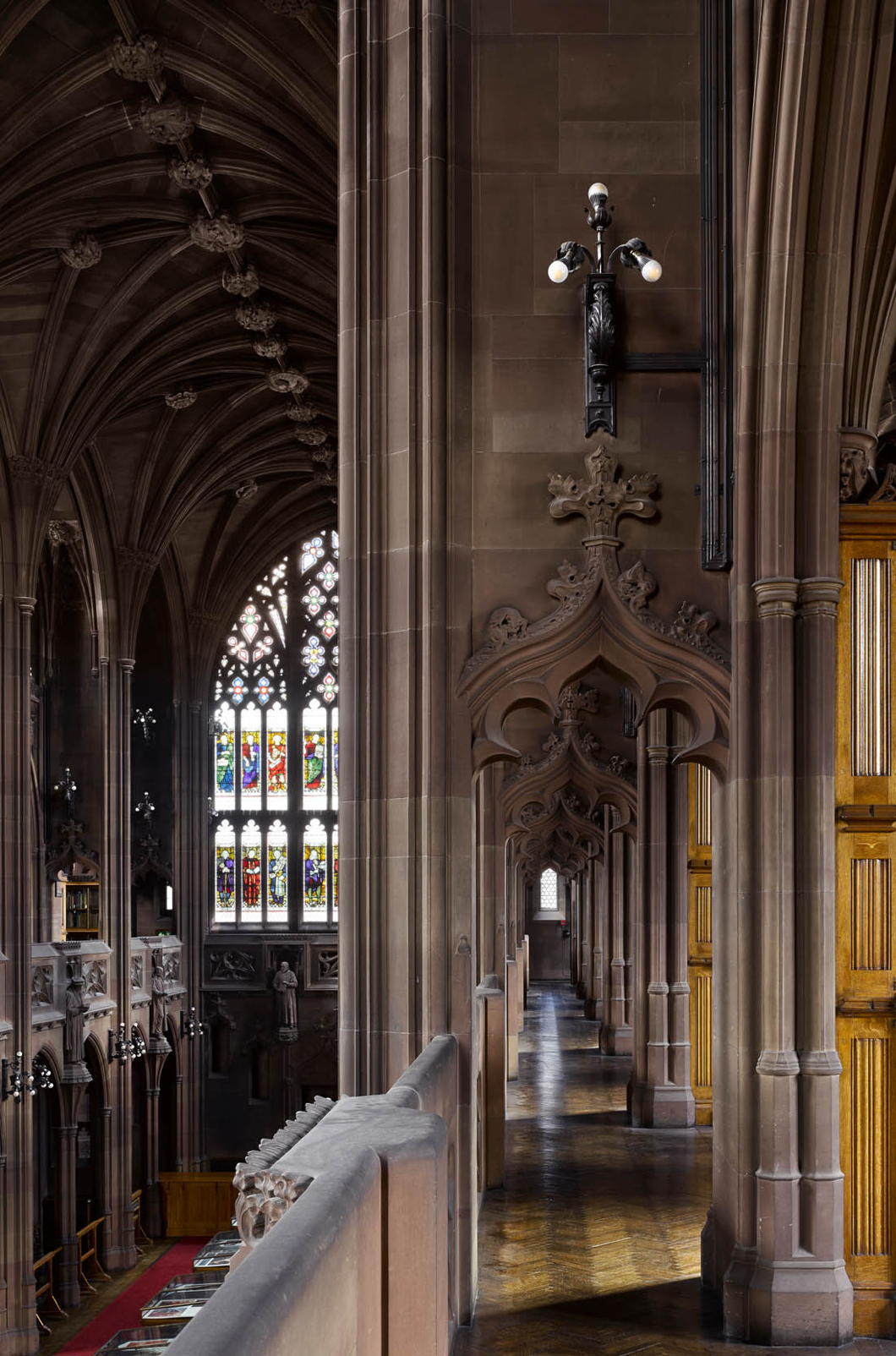
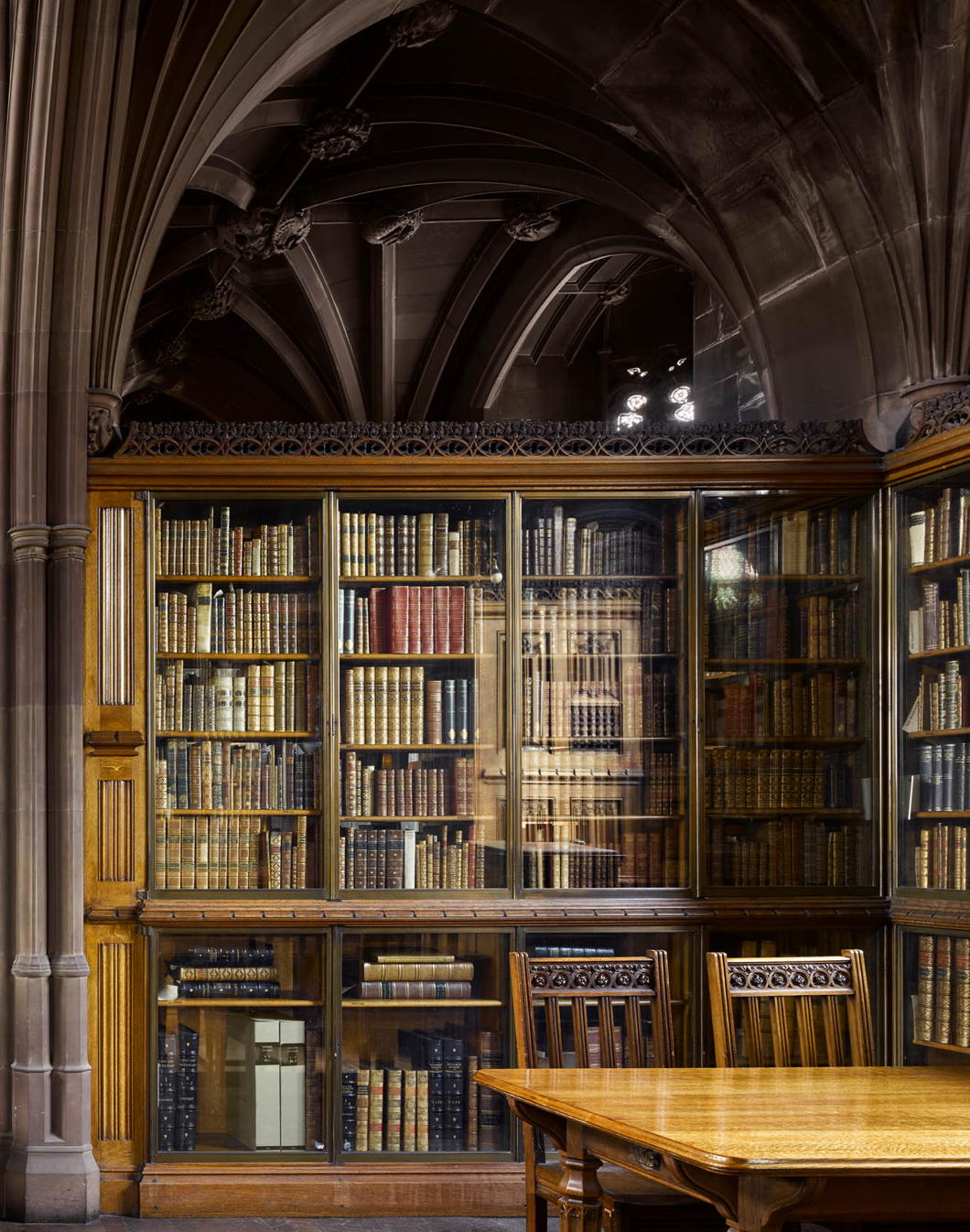
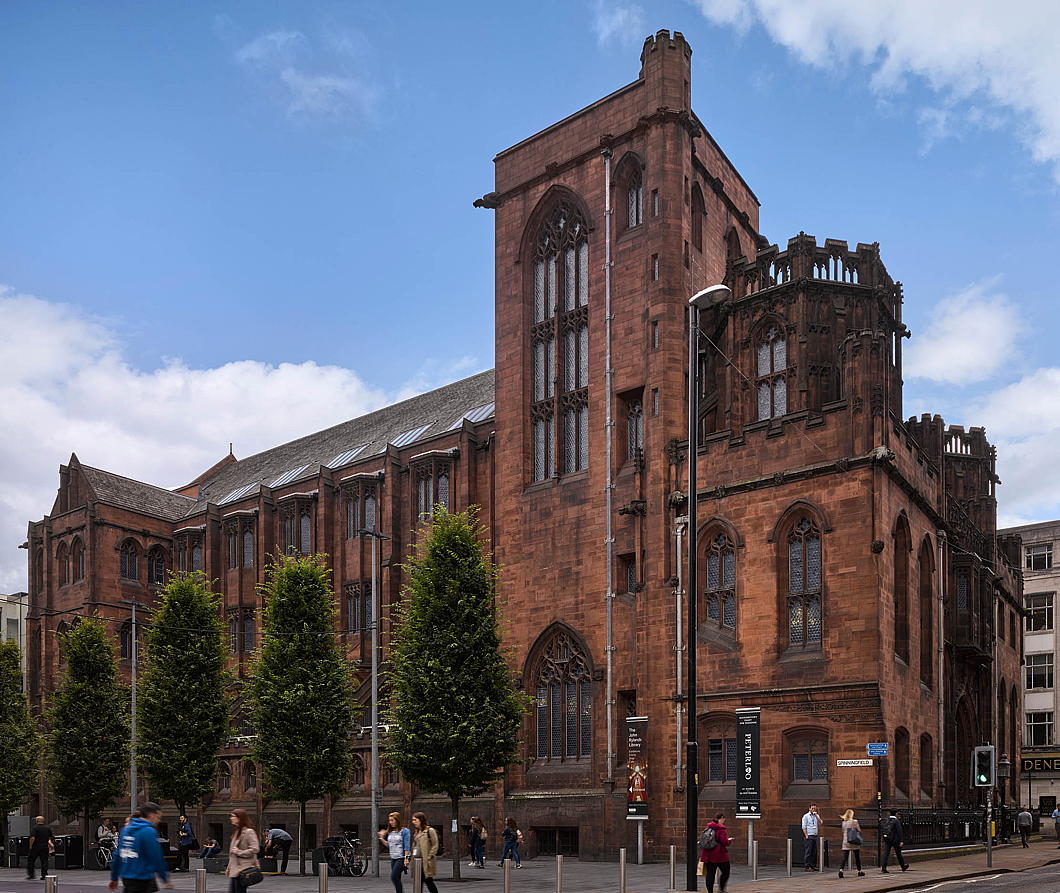
Search
Instagram: @andcusack
Click here for my Instagram photos.Most Recent Posts
- Silver Jubilee November 21, 2024
- Articles of Note: 11 November 2024 November 11, 2024
- Why do you read? November 5, 2024
- India November 4, 2024
- The Lithe Efficiency of the Old Constitution November 4, 2024
Most Recent Comments
Book Wishlist
Monthly Archives
Categories


